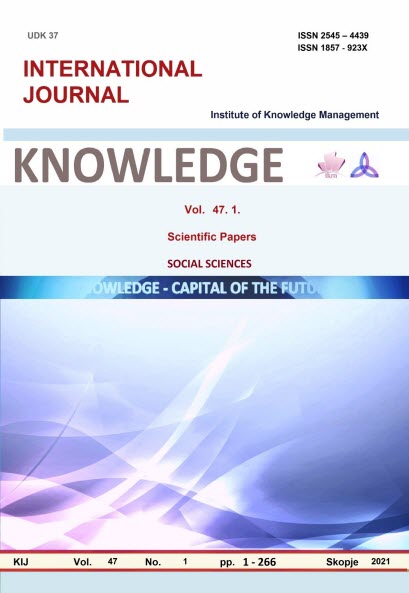LIABILITY AND COMPENSATION OF DAMAGE FOR ACTS OF CORRUPTION
LIABILITY AND COMPENSATION OF DAMAGE FOR ACTS OF CORRUPTION
Author(s): Menderez EminiSubject(s): Business Economy / Management
Published by: Scientific Institute of Management and Knowledge
Keywords: compensation of damage; pecuniary damage; non-pecuniary damage; public servants
Summary/Abstract: Corruption is the most dangerous social disease or the biggest social problem that civilization is facing in historical continuity. It is one of the most serious and widespread forms of crime in modern societies, regardless of whether the country is rich or poor, developed or underdeveloped or what kind of system it has. Hence, to speak of corruption as a phenomenon is a significant opportunity to get into the essence of this negative and widespread phenomenon, which penetrates deep into the pores of society and causes great harmful consequences to the overall social, economic, moral and other types of system. It can be said that corruption is the generator of the most serious threats today: wars, terrorism, organized crime and more. Given the seriousness of the problem of corruption, it is necessary to establish an interdisciplinary approach in the fight against it. The complexity of corruption itself necessarily requires its consideration from every aspect and the involvement of all means and instruments in the fight against it. Namely, although it is often thought that the notion of corruption should include only the criminal legal notion, criminalizing active and passive bribery and abuse of office by officials for the purpose of realizing some personal benefit for themselves or for someone else. Such a narrow approach does not coincide with the effective fight against corruption, because it is not only a violation of criminal law norms, but also of the administrative, social, moral and economic norms of a society. For these reasons, it is necessary to define corruption from a broader aspect, i.e., from a political-social aspect as a social evil that causes consequences in every sphere of society. Hence, this paper will try to answer some questions related to the legal institute - compensation for acts of corruption, as it can be an important tool in the fight against corruption in public administration. Namely, apart from the state itself and its organs, the citizens themselves who are victims of corruption can become an important tool in detecting and combating it. That is why it is necessary to raise public awareness about the possibility of compensating for the damage suffered by the corrupt acts of public servants. Well-informed citizens, who are aware of their rights and are ready to defend them, are a strong support of the system of social integrity. On the other hand, an apathetic public that does not know its rights and accepts abuse by the administration, creates a basis for the spread of corruption. The research should also show whether this institute can and is applied in our country, as well as to show the reasons for the current situation in terms of its practical application and implementation. Among other things, he will offer a series of measures and activities that need to be taken with the ultimate goal, improving the current situation and increasing the use of this tool in the fight against corruption.
Journal: Knowledge - International Journal
- Issue Year: 47/2021
- Issue No: 1
- Page Range: 231-236
- Page Count: 6
- Language: Macedonian

